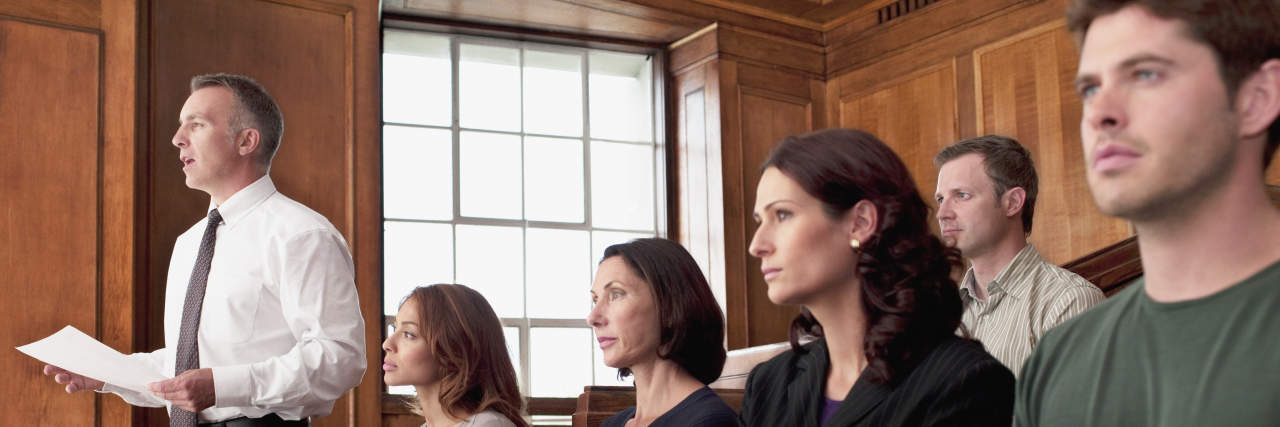Why I'll Never Forget Being Called to Jury Duty as a Sexual Assault Survivor
Editor's Note
If you’ve experienced sexual abuse or assault, the following post could be potentially triggering. You can contact The National Sexual Assault Telephone Hotline at 1-800-656-4673.
If you’ve experienced domestic violence, the following post could be potentially triggering. You can contact The National Domestic Violence Hotline online by selecting “chat now” or calling 1-800-799-7233.
I was relaxing by my fire pit a few weeks ago when my housemate brought me a piece of mail. It was a form I hoped I’d never see: a jury duty summons. I opened it, viewed the dates, and followed all the next steps.
My first day as a potential juror finally arrived, and I had all kinds of questions running through my mind. What kind of case might I hear? Will I know anyone else there? What if the case lasts for more than a day?
None of those questions really jarred me much. No question from any other potential juror bothered me either. The question that really got to me came from the judge.
We all piled into the courtroom and were told the case involved rape and domestic violence. The “innocent until proven guilty” defendant was a young man. The sexual assault survivor was a woman. I was sitting in the middle of the room — there were several people in front of me and several behind me. The judge introduced us to those who were involved in the case and read a list of possible witnesses. The judge asked questions like “Does anyone know these people?” and “Is anyone going to have potential hardship if they are required to be here?” A few folks raised their hands, and about five or six of them were excused. The judge then asked the question that stayed with me: “Is anyone here unable to remain unbiased due to life experiences?”
The thought had been in the back of my mind — I had wondered if they’d take personal experience into account. I’d felt uneasy and angry just thinking about the situation, and it felt like a ton of bricks hit me. I felt myself raise my hand before the question was even complete. I felt emotional as I saw numerous other people in the courtroom raising their hands too. I didn’t turn to look who raised their hands behind me. The judge called up one person at a time and gave the option for the individual to approach them so that the entire courtroom didn’t hear such personal stories. One by one, every person who approached the judge was excused. After firmly stating why I could not remain unbiased, I was excused from the courtroom too. When I turned to walk out of the room, I saw that many of the people behind me had their hands raised as well.
I left the building feeling nauseated. The memories of everything that had happened to me came flooding back — memories of how no one believed me and my assailant got away. I felt guilty for not staying in the courtroom so I could be on the survivor’s side. I felt guilty for not being able to remain unbiased in a rape case. I felt sick and angry thinking of all of those jurors who had been hurt in the same way I had.
The majority of the potential jurors were excused because of one question about their likely traumatic experiences. The majority of the excused jurors were women — but some were men as well. Some of them shared their experiences out loud, which was brave of them. It really started to set in — a substantial amount of people have survived some form of sexual assault in their lifetimes.
This is why we need laws protecting sexual assault and domestic violence survivors, and we need people to believe us. There are so many of us who’ve survived this crime that we need to be heard.
Getty image by Chris Ryan.

